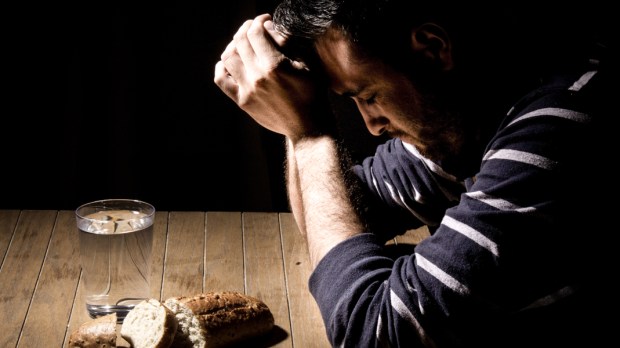Well, yeah. Lent, says Scott McConnell of Lifeway Research, “seems to lack crossover appeal. It has remained a religious event, rather than one that appeals to a broader public.” Non-Christians like Easter and Christmas, but Lent, no. Those make people happy, Lent doesn’t.
As McConnell explains it, “Lent is not about having your best life now. Those who observe it believe they are giving up things they want in order to focus on what God wants. There’s little popular appeal in that.”
No, there’s certainly not. Secular people might diet like crazy, but they won’t fast. They can’t fast, because fasting requires Someone to fast for and to talk to while you’re doing it. You’re disciplining your desires and your body to help yourself hear God more clearly. No point in doing that if you don’t really believe in God.
What we do for Lent
Here are some of Lifeway’s findings, as reported on the website of the Evangelical magazine Christianity Today. The study tells us what sort of acts people offer God in Lent.
As you might expect, the most common discipline is giving up a favorite food or drink. Fifty-seven percent of the Lent-practicing people mentioned that. Thirty-nine percent mentioned praying more, 38 percent giving to others, and 35 percent avoiding a bad habit. Only 23 percent said they gave up a favorite activity. Surprisingly for a Baptist group, Lifeway doesn’t seem to have asked people if they read more Scripture during Lent, but I’m guessing a lot do.
Two-thirds of Catholics but less than half of Protestants said they give up food or drink. A little less than half of Catholics and one-third of Protestants said they gave to others. Those (Catholics and Protestants) who went to church more than once a month were over twice as likely to give to others as those who didn’t go that often.
The New Evangelical Lent
As you’d guess, more Catholics observe Lent than anyone else. Eighty-two percent of those who say they go to Mass at least once a month do something for Lent. Surprisingly, though, 20 percent of Protestants in general and 28 percent of Evangelicals in particular observe Lent. The figure rises to 30 percent of those who go to church at least once a month.
This marks a big change, especially for Evangelicals. As a group, they’ve always rejected what they call “works.” That word covers anything a Christian might do for God, especially acts like fasting and giving things up for Lent. Works are worse than useless.
They thought (and a lot still think) that when people do something for God, they’re trying to buy their way into Heaven. They’d say that man is saved by grace, not by works. In practice, many think pretty much anything Catholics do is a “work” and a way to try to bribe God.
They can be very difficult about this. One minister of high stature in the Evangelical world once told me that I was recommending “works righteousness” when I talked about fasting in Lent. (I quote from memory but this is close to the actual conversation.)
I replied that Jesus taught his disciples how to fast (see Matthew 6:16-18), expecting us to do it. He said he did. “But,” he said, “I fast in response to Grace. You fast as a work.” He knew this because I was Catholic, therefore definitely doing it for the wrong reasons. I tried to explain that we Catholics also fasted in response to God’s grace, but he refused to believe it. I do not exaggerate how little my protests mattered, because he knew (he thought) what Catholic I was really doing.
Things change
Things change. Serious Christians eventually recognize seriously useful Christian practices, and so Evangelicals have discovered Lent. It meets an instinctive desire we have to prepare ourselves for a great celebration, to make ourselves better in response to someone who’s giving us a great gift.
Evangelicals have started learning what the Catholic Church has known for a couple millennia. That points to one reason other Christians should be grateful for the Catholic Church. The Church keeps things they throw out. We have those things when they finally want them back. We may have banged them up a bit or left them in the closet where they got dusty, but we have them.
The Evangelical lives in an IKEA-decorated house. The Church is the great-grandparents’ attic. It’s a treasure-trove for those who recognize treasure. It’s a resource for those who don’t want more boring blonde Scandinavian furniture and need something with character. And everything in it’s all free for the taking.

